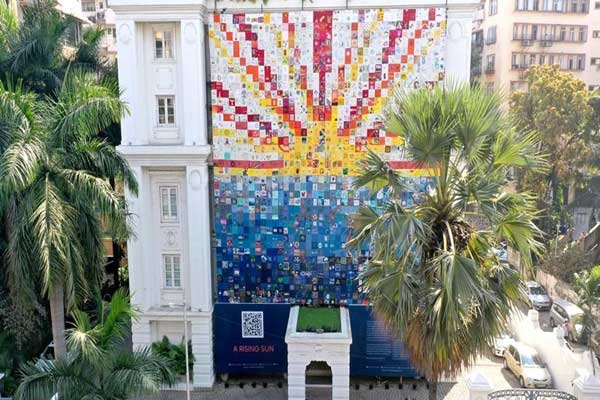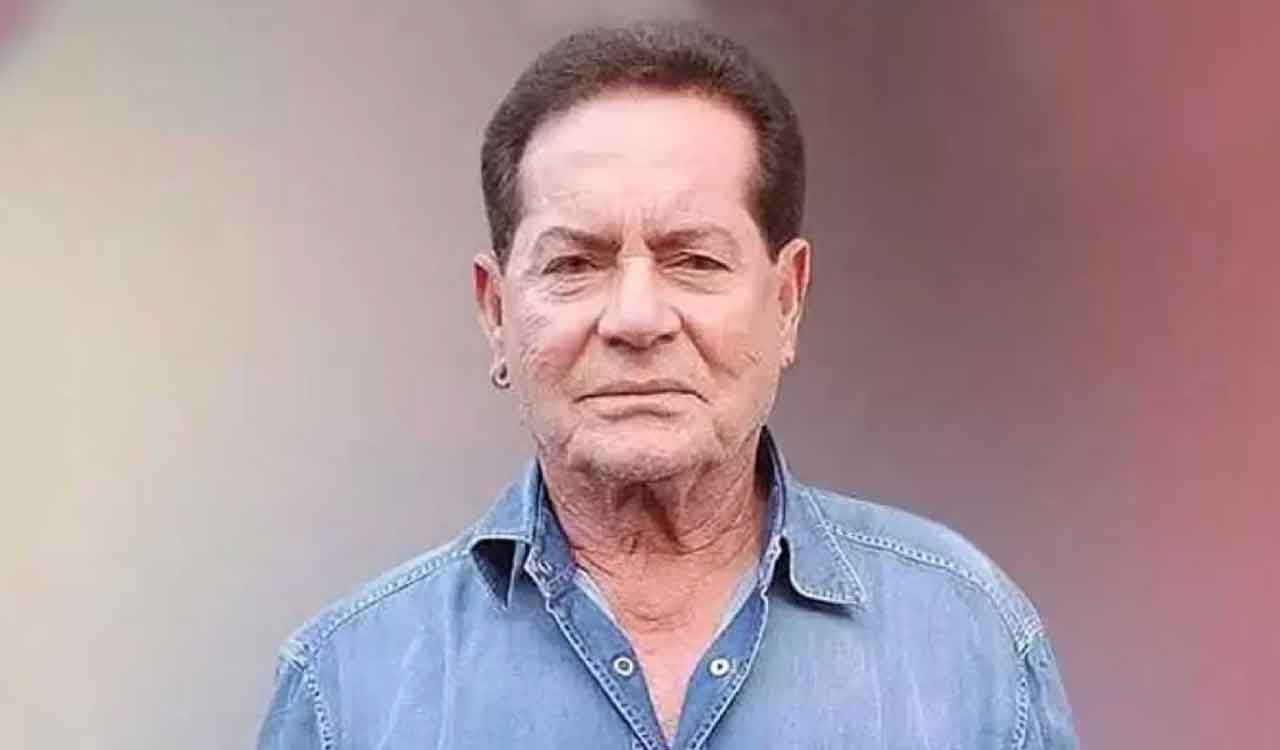Mumbai locations exhibit hundreds of artistic ‘Corona Quilts’
The Corona Quilt Project presents a diverse array of, site-specific installations, scattered throughout the city.

New Delhi: As India strives to recover from the reeling impact of the Covid-19 pandemic, the combined creative expressions of 1,300 Indians about their own experience of the pandemic, are finding their way to locations across Mumbai as part of a unique art installation made of repurposed material ranging from repurposed fabric and gunny bags to table-cloths.
The Corona Quilt Project presents a diverse array of, site-specific installations, scattered throughout the city. It was conceived during the initial weeks of the pandemic as a way to connect people, discuss self-expression and mental health, and bring communities together.
This project first began during the nation-wide lockdown with the aim of giving people across India a chance to share their pandemic experiences. A cloth square was the template; each person had to create a design to imbue this square with the intensity of her or his own experiences. Nearly a year later, it has taken on a tangible form with individual squares woven together.
The Project, curated by Dia Mehhta Bhupal and Neha Modi, kicked off earlier this March with a massive installation at Jindal Mansion. It will be unveiled across several locations in Mumbai, including the BMC School in Worli, the Haji Ali Pumping Station among others. Additionally, these Corona Quilts will be showcased as moving art installations on public vehicles along different routes in Mumbai. Together, all these Corona Quilts will cover more than 8,000 square feet space in the city.
Drawing from more than 12,000 digital and actual submissions that were sent to them, Dia and Neha worked to create a montage of these interpretations over nine long months.
“The Project draws inspiration from the vibrancy of Mumbai and seeks to delight and inspire joy with those who experience it. The location on the Worli-Peddar road junction is especially exciting. The locations connect high-traffic areas in Mumbai allowing us to bring this to the public and make this presentation highly visible,” Neha Modi, Project Director, told IANSlife.
The artist Dia Mehhta Bhupal’s intention is to present the full range of depth, diversity and ingenuity of the squares collected and create a healing space within the city.
The installations include submissions by Bollywood personalities Neetu Kapoor, Namrata Shirodkar, Shweta Nanda Bachchan as well as well-known Indian artists and fashion designers including Monisha Jaisingh, Surily Goel, Anushka Khanna, Asad Laljee and Rekha Rodwittiya, among others.
According to Sangita Jindal, Chairperson of the JSW Foundation,”Art is life-affirming. It enhances us, expands our consciousness. The Corona Quilt Project is a reminder that while the darkest hour precedes the dawn, the sun rises to give us the opportunity to hope, to dream and to imagine a better tomorrow.”
Says Gayatri Divecha, Associate Vice President — Good and Green, Godrej Industries Ltd: “This year has been none like other. As we fight this pandemic together, we have stories and experiences that have shaped us as individuals, as a business, and as a group. Associating with the Corona Quilt Project helps us to visually mark this unique time in our history as a Godrej family.”
Honouring the frontline workers, “Warriors Rise” a montage of portraits will be presented on the facade of the Haji Ali Pumping Station. The focus is a pumping heart, a symbol of all the workers have done to keep us safe and healthy. It features individual portraits of doctors, nurses, the police force and members of the Bombay Municipality Community (BMC), who have been our core strength and support during the pandemic.
“On the Rise”, the presentation on Worli Seaface, wraps around the facade of the building with over 5000 individual narratives coming together. It draws a parallel from the butterfly — a symbol of transformation, evolution and resurrection. This has been a time of monumental and purposeful metamorphosis that has given birth to new perspectives and visions.
“My presentations have been inspired by children’s drawings and their inner innocence. Rise draws continuities and solidarities between human and nature, artificial and natural, then and now. The concepts chosen embody our current reality and consequences of the pandemic. It’s truly humbling to have the opportunity to work on the individual stories that connect and collectively empower the community,” concludes artist Bhupal.
Related News
-
After top court blow, Trump seeks 15% global import tariff
2 hours ago -
One year on, no closure for SLBC victims’ families
2 hours ago -
India face South Africa in crucial T20 World Cup Super Eight clash
3 hours ago -
Rain forces washout in New Zealand-Pakistan T20 World Cup match
3 hours ago -
Hyderabad’s Nehru Zoological Park welcomes real-life ‘Rafikis’
3 hours ago -
India clinch first Women’s T20I series victory in Australia since 2016
3 hours ago -
Sowmya selected for Indian women’s football team for AFC Cup 2026
3 hours ago -
Lohitha Sai wins girls’ recurve gold at CM Cup archery
3 hours ago




